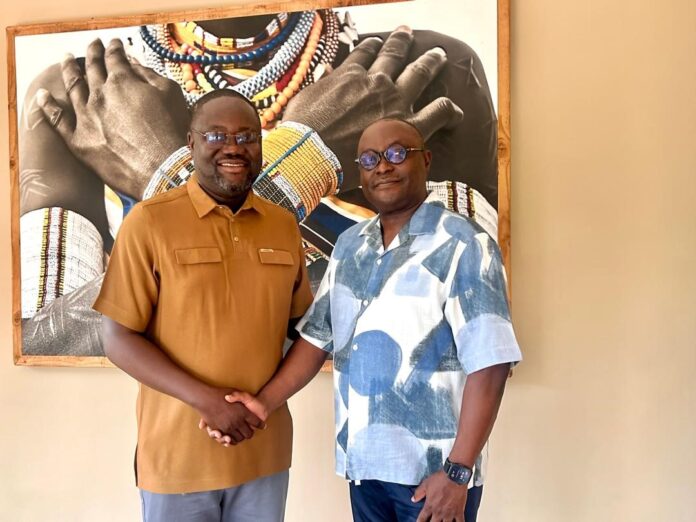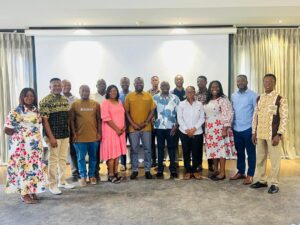
In a significant move to strengthen regulatory cooperation within Ghana’s commercial shipping sector, the Ghana Shippers’ Authority (GSA) and the Ghana Revenue Authority – Customs Division (GRA-Customs) have inaugurated a Joint Working Group.
The initiative aims to improve coordination and enhance operational efficiency at the country’s ports.
Speaking on behalf of the CEO of the GSA, Prof. Ransford Gyampo, the Deputy CEO in charge of Operations, Prince Henry Ankrah, stated, “There is no doubt that this Working Group is both critical and timely. I am confident that the agreed terms—from aligning initiatives through digitalisation and automation to developing a robust monitoring and evaluation framework—will greatly enhance regulation within the commercial shipping space.”

He further noted that the collective efforts of both institutions in undertaking research, facilitating dialogue with industry players, and ensuring policy alignment with national and international standards will not only optimise government revenue but also improve service delivery and reduce the cost of doing business at Ghana’s ports.
On his part, the Acting Deputy Commissioner for Operations, Mr. Emmanuel Ohene, described the initiative as a pivotal national assignment. He said, “This offers us the opportunity for state institutions to deepen collaboration and work together for seamless regulatory oversight of the commercial shipping sector—one that secures government revenue while enhancing clearance processes at the ports.”
Highlighting the legal foundation of the initiative, Mr. Ankrah referred to the Customs Act, 2015 (Act 891) and the recently passed Ghana Shippers’ Authority Act, 2024 (Act 1122) as the core legislative instruments supporting the Working Group’s mandate.
While Act 891 focuses on customs control, revenue mobilisation, and border procedures, Act 1122 empowers the GSA to protect shipper rights and regulate service providers across the industry.

As part of the collaborative commitment, the GSA reaffirmed its respect for the provisions of Act 891 and called on GRA-Customs to actively support the implementation of Act 1122, particularly in areas such as shipper and service provider registration and enforcement of accountability measures, including penalties and sanctions where necessary.
This partnership marks a new era in trade facilitation and port governance, with hopes that such inter-agency cooperation will serve as a model for other sectors seeking to harmonise regulatory functions for national development.









